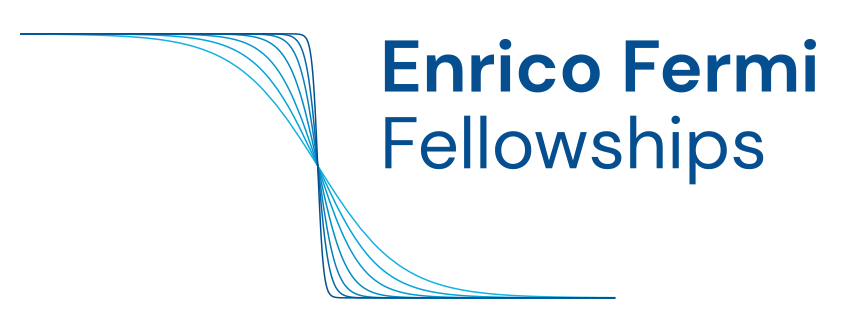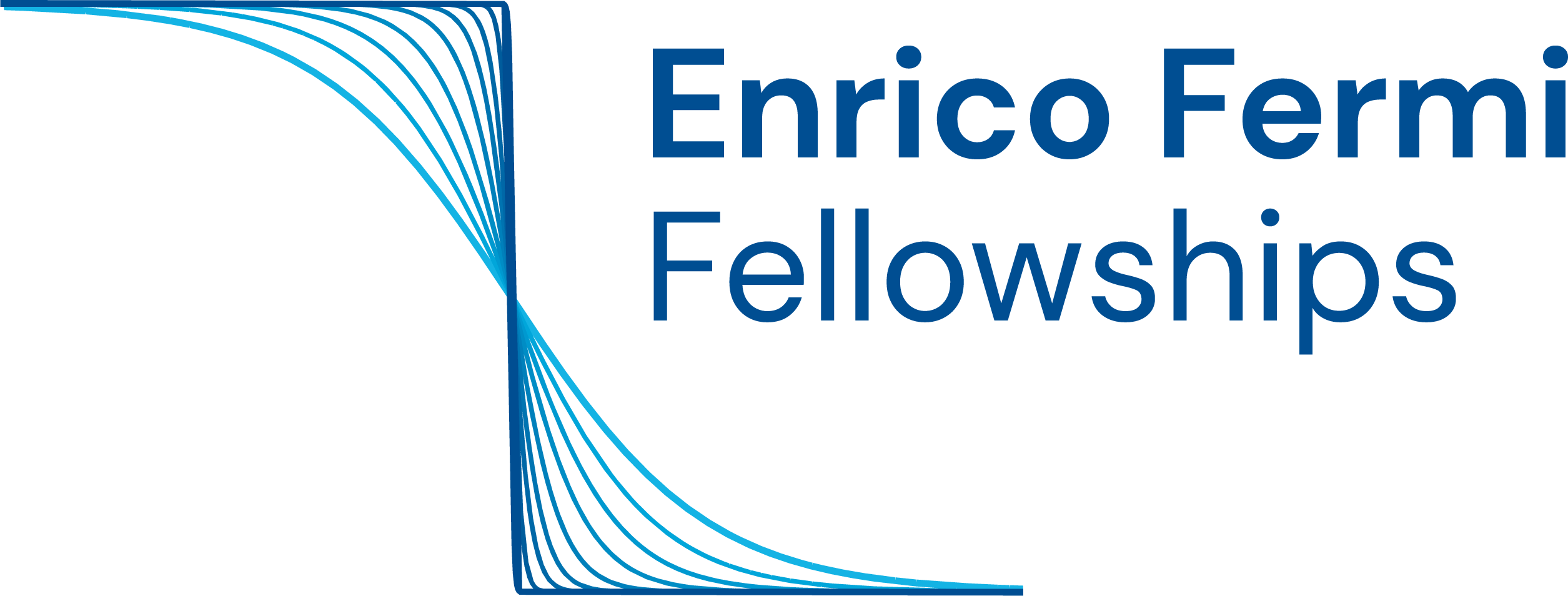Your research project on fundamental science bridging across theory and experiments.
Who can apply
Key requirements
Two supervisors, one responsible for the theoretical and one for the experimental part, supporting your project.
One institution committed to administratively support your project.
Who can apply
The Enrico Fermi Fellowships are designed for exceptional graduate students all over the world aiming to fund parts or all of their Ph.D. to enrich their graduate experience by pursuing research across the theory/experiment divide.The fellowships focus on fundamental scientific areas such as Fundamental Physics, Astronomy, Cosmology, Quantum Foundations, Complexity & Emergence (including contributions from biology), especially where research addresses conceptual frontiers. Fields with abundant funding or minimal separation between theoretical and experimental research are lower priority.
Fellows must split their doctoral tenure between theoretical and experimental domains to ensure a comprehensive research experience.
Visit our FAQ page if you have questions.
See the profiles of the EFF first cohort.
Details
A non-exhaustive list of possible target fields where theoretical and experimental investigations could gain from double theory/experiment training include:
- Quantum optics experiments seeking to negotiate fundamental questions in Quantum Mechanics.
- Tabletop tests for Quantum Gravity, for instance, in condensates, superfluids, optomechanics, or matter-wave interferometry.
- Investigations into solid-state physics showing potential connections between Quantum Information and foundational questions in Quantum Gravity.
- Topological photonics.
- Simulations of fundamental physics with Quantum Computers.
- Quantum Gravity signatures in gravitational waves, for instance, seeking quantum correlations in the noise.
- Quantum Gravity signatures in cosmology, extreme astrophysics.
- Complex systems and consciousness, the nature of intelligence, the origin of life, and interfaces between these questions.
Examples
Some indicative examples of applications that will be considered.
The program is designed to be flexible, aiming to accommodate most use cases and fit with the different academic systems around the globe. If your case is not included in our examples, but you think you are a good fit, don’t hesitate and apply!
Complementing experiments with theory
A North American doctoral student with a background in experiments finished all required courses and started working in a laboratory. They can seek an EFF to relieve teaching duties and spend one year in a theoretical group. The topic of the research of the theory group may or may not be on physics related to the experiment.
Ph.D. Fellowship with Hybrid Focus
An Asian Master’s student applies for an EFF fellowship to fund two years of their Ph.D. on a split experiment-theory project. They plan to spend 12 months designing and executing an experiment at one institution and another 12 months at a partner institution to delve into related theoretical aspects.
African theoretician doing experiments
An African theoretical physics student at an African University applies to an EFF with a fully experimental research project. They fund a one-year research project in an experimental laboratory abroad to complement their training.
South American-European Synergy
A South American experimental physics student obtains an EFF to spend one year in a European theory group to complement their project with theoretical foundations.
Extending an EU Fellowship
A European student uses an EFF to add a fourth year to their graduate education program to focus on cross-discipline training after the standard 3-year EU Ph.D. fellowship.



